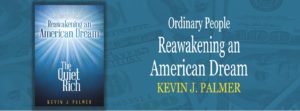Economic projections for muted growth in China have thrown global markets into a frenzy. Volatility and fast markets have been the order of business for global exchanges as of late. On Wall Street last week stocks suffer their second worst mid-year low since 1928.
News that China’s manufacturing sector shrank to its lowest level in two years put an abrupt end to an oil price surge that left Brent and U.S. crude finishing down 8- percent on fears of China’s slacking demand. And if China was not enough economic paranoia, Canada is murmuring the word recession at America’s back door.
In this country as political ambitions heat up, issues like immigration may take a back seat to economic worries that make wealth disparity in America a flash point for the 2016 elections. In two weeks alone American investors lost hundreds of billions in stock net worth after the unprecedented 1,000-point decline and subsequent instability. But despite the huge losses the gap between upper-income and middle-income families is still at its highest level on record, slowly eroding the middleclass. Today the rich have nearly seven times more than median income earners in America.
In the world’s second largest economy things look even worse as the financial fallout continues. The Chinese central government has been unyielding in attempts to bolster its stock markets to enhance presence on the world stage. Over the past two years the government has aggressively urged the buying of stocks and in many cases people of average means in China borrowed to do so. Now as prices decline they are forced to sell their stock savings to meet margin calls.
Of the 1.4 billion Chinese residents the top 1 percent in made up of households with average annual incomes of about $80,000 in US dollars. That pales in comparison to the top 1% in American, who earns a minimum of $380,000. The bigger impending problem however is that China has nearly 500 million people living on less than $2 a day.
If the central government of China is determined to prove their economy can work. They must embrace the essence of capitalism by focusing not on stock markets, but on its people, the true economic engines of growth and let accumulated wealth be reproductively employed in a middle class.
Kevin J. Palmer
The Quiet Rich


